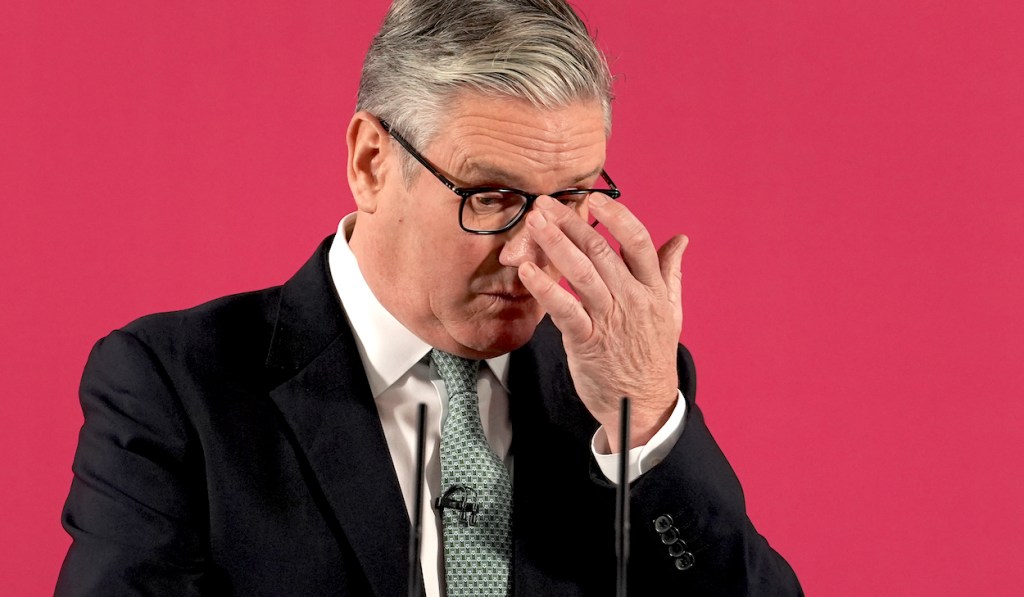
Andrea Long Chu is the poster girl critic of the American progressive left. Writing primarily for New York magazine, she made her name with takedowns of celebrated novelists such as Hanya Yanagihara, Bret Easton Ellis and Zadie Smith. In 2023, she was awarded the Pulitzer Prize for reviews that ‘scrutinise authors as well as their works’. Refusing to separate art from artist is, of course, central to both critical theory and wider progressive politics. ‘If that makes me an ideologue, so be it,’ Chu writes.
Authority is a compilation of these pieces, two new essays, and others that Chu published between 2018 and last year. ‘Why shouldn’t a book review be personal?’ she asks. ‘It’s my understanding that persons are where books come from.’
Fair enough. So let’s judge Chu on her own terms. As a lesbian transwoman with mental health problems, she scores highly on the intersectional victimhood index. These characteristics may or may not have been a factor in her Pulitzer win, which according to this showing is going cheaper these days. But perhaps they provide a useful veneer for her political views: ‘I think leftist values like prison abolition… are substantively superior to others, and I think everyone – critic or no – should agree with me,’ she blithely informs us.
In an opening polemic against ‘art for art’s sake’, she claims that Zadie Smith ‘writes with great moral intensity but little moral clarity’ (Chu’s italics). Doesn’t she know that, as the white, male historian Michael Burleigh wrote, ‘moralising is to morality as artiness is to art’? Indeed no one is safe from Chu’s Eye-of-Sauron-like gaze:
Anyone who claims to have no horse in the great derby of… political life is either lying or mis-informed… Either way, the public has a right to know which horse is his.
Even when she’s right about a book, it’s for the wrong reasons. In her takedown of Yanagihara and her bestselling A Little Life (her dim view of which I happen to share), Chu writes that Yanagihara’s ‘motives remain unclear’. Come again? Writing a good book should be motive enough – but apparently not for witchfinder Chu. Yanagihara’s failure to justify her writing about gay men is ‘baffling, even offensive’. Chu tells us that she herself has experienced suicidal ideation like Jude, the protagonist of A Little Life. So she, on the other hand, has authority.
Staggeringly, she criticises Yanagihara for recycling descriptions from a magazine article for her novel. Here Chu’s keyboard-warrior spite undermines what ability she does have as a critic. Can she seriously not know how novels are very often composed? The frustrating thing is that she sees the real problem with the book. Among the nonsense, she briefly nails its ‘cloyingly’ mawkish quality and writes of Jude’s self-harming: ‘The first time he cuts himself, you are horrified; the fiftieth, you wish he would aim.’
Another bête noir is Bret Easton Ellis, whose 2019 non-fiction book White Chu disparaged. She considers him ‘racist’, ‘misogynist’ and ‘laughably unaware of his own irrelevance’. So she must have been nonplussed when two years ago he published the latest of several masterpieces, The Shards, to wide acclaim. She dismisses Ellis’s 2011 essay on post-empire American culture as ‘baffling’. A better writer, Lili Anolik, recognised it as evidence of ‘signal talent’.
Bret Easton Ellis is branded as ‘racist’, ‘misogynist’ and ‘laughably unaware of his own irrelevance’
Of course, the modern critic doesn’t just do books – no highbrow elitism here. Chu can just as easily attack Andrew Lloyd Webber, or praise TV adaptations of video games. If she were truly brave she’d have taken down the post-apocalyptic drama series The Last of Us, which is humdrum, but she doesn’t – presumably because it stars a nonbinary actor and Pedro Pascal. Only the right, she claims, moans about the politics of movies, which is a bit rich. It wasn’t the right who demanded race quotas or complained, like Richard Brody in the New Yorker, that one of the few great films of recent years was ‘ridiculously white’.
Still, read as comedy, there is gold here. Most of the pieces are signed off with vapid aphorisms, like a dodgy AI Substack or a creepily online Carrie Bradshaw. One states: ‘The other name for disappointment, after all, is love.’
On finally reaching the title essay, the exhausted reader has had to wade through a jarringly academic history of criticism, before arriving at Donald Trump. You knew it was coming, but boy did it take a long time. Unintentional comedy aside, I suppose Authority was compiled for joyless Brooklyn scolds. It certainly wasn’t for me.








Comments